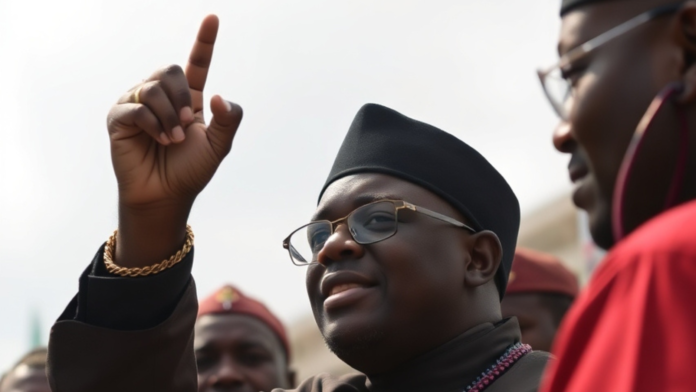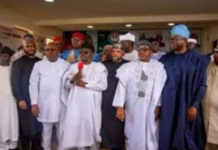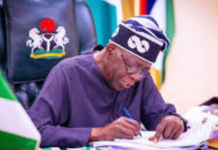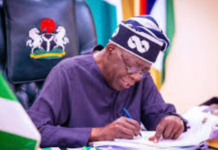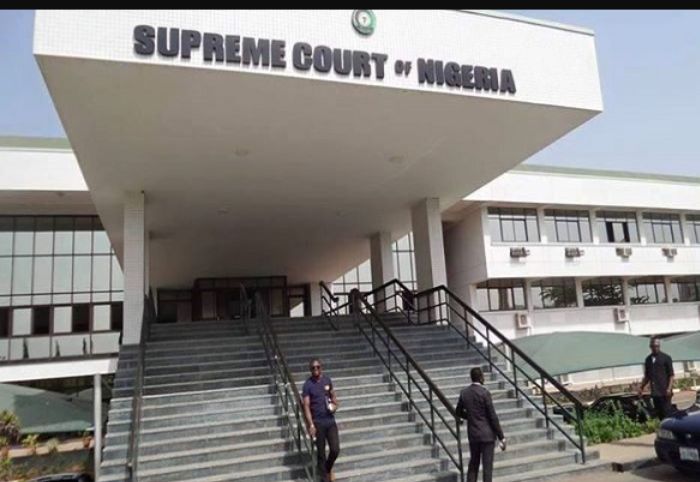Corruption remains one of the most formidable challenges facing Nigeria’s political landscape, hindering its development and tarnishing the country’s image both domestically and internationally. Despite efforts by successive governments to tackle the issue, corruption continues to be deeply entrenched in the fabric of Nigerian politics, affecting virtually all aspects of governance and public life. From embezzlement of public funds to bribery and abuse of power, corruption in Nigerian politics not only undermines democracy but also stifles economic growth, perpetuates inequality, and erodes the trust citizens have in their leaders and institutions.
The Scope of Corruption in Nigerian Politics
Corruption in Nigeria manifests in various forms, and it occurs at multiple levels of government, from local councils to the highest echelons of national power. The most common forms of corruption in Nigerian politics include:
1.Embezzlement of Public Funds: Public officeholders often misappropriate funds allocated for public projects, social services, and welfare programs. This theft deprives citizens of essential services like healthcare, education, and infrastructure development. In many cases, funds intended for projects like road construction or healthcare facilities are diverted into private pockets, leading to unfinished projects or poor-quality outcomes.
2.Bribery and Kickbacks: Political officeholders, government officials, and contractors frequently demand or offer bribes to influence decision-making. In public procurement processes, for example, officials may demand kickbacks from contractors in exchange for lucrative government contracts. Similarly, politicians may pay bribes to voters or election officials to ensure their victory during elections.
3.Fraudulent Practices and Election Rigging: Corruption in Nigerian politics is particularly evident during election cycles. Election rigging, vote buying, and the manipulation of electoral processes undermine the democratic system, leading to the election of leaders who are not genuinely chosen by the people. This undermines the legitimacy of the political system and distorts the political will of the electorate.
4.Misuse of Public Office: Many politicians use their public office for personal gain, engaging in activities such as nepotism, favoritism, and patronage. Public positions are often seen as opportunities for wealth accumulation, with politicians appointing family members or close associates to key government positions, regardless of their qualifications or competence.
5.Money Laundering: Politicians and public officials sometimes engage in money laundering to conceal the illicit origins of their wealth. This can involve channeling public funds into private accounts, investing in real estate or businesses, and using intermediaries to hide the source of the money. Money laundering undermines economic stability and reduces the capacity of the government to tackle poverty and inequality.
The Impact of Corruption on Nigerian Politics
The consequences of corruption in Nigerian politics are far-reaching and have a profoundly negative impact on the country’s social, political, and economic development.
1.Weakening of Democratic Institutions
Corruption undermines the very foundation of democracy by eroding the rule of law, diminishing transparency, and distorting public policy. Public officials who are corrupt tend to manipulate democratic processes for personal gain, often disregarding the welfare of the people. This erodes public trust in democratic institutions and fuels voter apathy, as citizens become disillusioned by a system that seems incapable of delivering on its promises.
2.Hindrance to Economic Development
Corruption has a direct impact on the Nigerian economy. When public funds are embezzled or mismanaged, essential infrastructure projects—such as roads, bridges, hospitals, and schools—are either delayed or poorly executed. This leads to inefficiencies, high costs, and a lack of basic services, all of which hinder Nigeria’s economic growth. Foreign direct investment (FDI) is also discouraged, as investors shy away from environments where corruption is rampant, fearing that their investments may be diverted or siphoned off.
3.Deepening Poverty and Inequality
One of the most tragic impacts of corruption is its role in perpetuating poverty and inequality in Nigeria. While a small elite siphons off the country’s wealth, the vast majority of Nigerians continue to live in poverty, with limited access to quality healthcare, education, or employment opportunities. Corruption diverts resources away from social welfare programs that could benefit the underprivileged, leading to widening inequality and social unrest.
4.Impediments to National Security
Corruption has also been linked to insecurity in Nigeria. The diversion of funds meant for military operations and law enforcement agencies has hindered the government’s ability to combat insurgency, terrorism, and organized crime. The theft of defense budgets, procurement fraud, and the misallocation of resources leave security agencies poorly equipped, making it more difficult for them to address the country’s numerous security challenges, including the Boko Haram insurgency in the northeast, banditry in the northwest, and other forms of violence across the country.
5.Loss of Global Standing and Reputation
Corruption has also tarnished Nigeria’s reputation on the global stage. International organizations like Transparency International consistently rank Nigeria among the most corrupt countries in the world. This reputation affects Nigeria’s ability to attract foreign aid, investment, and diplomatic support. Additionally, it reduces the effectiveness of international partnerships and economic agreements, as foreign governments and organizations remain wary of dealing with a country where corruption is endemic.
Efforts to Combat Corruption in Nigeria
Over the years, various Nigerian governments have made attempts to address corruption, but progress has been slow. Some of the most notable initiatives include:
1.Anti-Corruption Agencies
The Nigerian government has established several institutions to combat corruption, the most prominent of which are the Economic and Financial Crimes Commission (EFCC) and the Independent Corrupt Practices and Other Related Offenses Commission (ICPC). These agencies are tasked with investigating corruption cases, prosecuting offenders, and promoting anti-corruption awareness. The EFCC, for example, has secured convictions of high-profile politicians and businesspersons involved in corruption.
However, these agencies often face challenges such as political interference, lack of funding, and insufficient legal frameworks to prosecute complex corruption cases effectively.
2.Whistleblower Programs
In 2016, Nigeria launched a **whistleblower program** aimed at encouraging citizens to report corrupt practices in exchange for rewards. This initiative has led to the recovery of stolen funds, but it has also faced challenges related to the safety of whistleblowers and the effectiveness of the legal framework for investigating the allegations.
3.International Cooperation
Nigeria has made efforts to collaborate with international organizations, such as the United Nations, the World Bank, and the African Union, in the fight against corruption. Through initiatives like the **Extractive Industries Transparency Initiative (EITI)**, Nigeria has worked to improve transparency in the management of its oil and gas resources, which have long been a focal point of corruption.
4.Public Awareness Campaigns
Government and civil society organizations have launched various public awareness campaigns to educate Nigerians about the dangers of corruption and its long-term impact on the country’s development. These campaigns aim to change public attitudes and promote integrity and accountability in both public and private sectors.
Challenges to Fighting Corruption
Despite these efforts, corruption persists due to several challenges:
– Weak Judicial System: The Nigerian judiciary is often slow, underfunded, and susceptible to influence, which hampers the prosecution of corruption cases. Long delays in trials and the frequent dismissal of high-profile cases undermine the fight against corruption.
– Political Will: While successive governments have expressed a commitment to combating corruption, political will has often been inconsistent. Political leaders sometimes protect corrupt officials within their own parties or administrations, making it difficult to pursue anti-corruption initiatives effectively.
– Cultural Factors: Corruption is deeply ingrained in Nigerian society, where it is sometimes viewed as a normal part of doing business or getting things done. This cultural acceptance of corruption makes it harder to mobilize collective action against it.
– Lack of Accountability: Many politicians and public officials continue to evade justice due to their political influence or wealth. The lack of accountability at the highest levels of government perpetuates the cycle of corruption.
Conclusion
Corruption in Nigerian politics is a complex, deeply rooted issue that requires sustained efforts from all sectors of society to address. While the government has made some progress through anti-corruption initiatives, the pervasive nature of corruption continues to undermine Nigeria’s development and democracy. For Nigeria to overcome this challenge, there needs to be a concerted effort to strengthen institutions, improve the judicial system, enforce accountability, and change the culture of impunity that has allowed corruption to flourish for so long. Only then can Nigeria hope to realize its full potential as a prosperous, equitable, and democratic nation.


